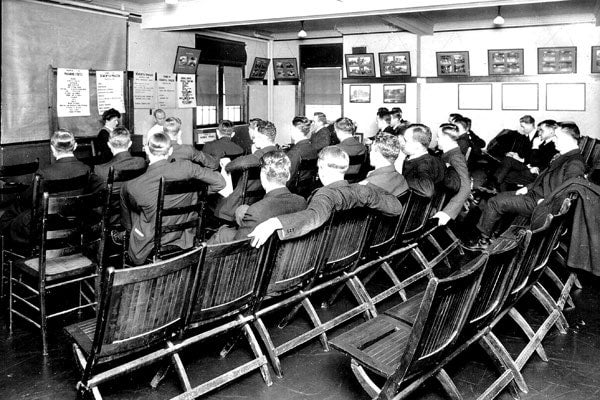
Making medical history at U of T
Published: November 21, 2012
Delivering a baby during an earthquake. Establishing Peterborough’s first medical-surgical clinic. Assisting in more than 25,000 surgeries over 35 years. Three generations of Moir-Cuddys – a U of T physician family – have done it all.
And they have the medical artifacts to prove it.
“My family was not enthusiastic when I told them I wanted to enter medicine, but I was stubborn and went to med school anyway,” recalls Ann Cuddy, a retired surgical assistant and U of T Medicine graduate whose grandfather and father were also U of T-trained physicians. “It was the only thing I wanted to do.”
Collected over a 113-year period, the Moir-Cuddy’s medical instruments – from 1898 to 2011 – will be on display as part of the first-ever conference dedicated to Toronto’s health care history, at the Faculty of Medicine Nov. 23 and 24.
“Demands on the health sector are greater than ever before, which is why we must use history as a cautionary tale,” says Pier Bryden, one of the organizers of the Taking Toronto’s Health Care History conference and an Assistant Professor in the Department of Psychiatry. “History illustrates the core values of the profession. Knowing our history keeps us honest in the midst of these competing demands. We need to know where we’ve been in order to determine where we’re going.”
This conference will give faculty, students and health care providers a crash course in Toronto’s health care history through lively panel discussions, interesting lectures and a fascinating exhibition of medical artifacts, including those from the Cuddy’s personal collection.
“It’s also been designed to build collaboration amongst various health sciences disciplines,” says Bryden.
Conference organizers and attendees come from a variety of disciplines and presentations feature history from a number of faculties, including medicine, nursing, public health, pharmacy, occupational therapy and social work.
“We’re asking today’s doctors to be superhuman and that’s overwhelming at the very least. Health care providers must work as a team – no one person can do it all anymore – and this conference opens the dialogue for professionals of various backgrounds to determine medicine’s future direction,” she says.
Jonathan Fuller, an MD-PhD student who is pursuing a graduate degree in the Philosophy of Medicine in addition to his undergraduate medical training, helped organize the conference.
“History helps define my professional identity and makes me feel like I’m a part of something special, a healing tradition,” says Fuller. “It makes me critical and humble as I reflect on the fallible nature of medical knowledge.
“History, like philosophy, brings our assumptions about disease and evidence into the light and counsels us on the importance of interrogating them.”
As for Ann Cuddy, the summers spent at her grandparent’s cottage in the Peterborough-area persuaded her to enter medical school in spite of her family's lack of enthusiasm for the pursuit.
“My dad knew what a commitment a career in medicine would be and thought at that time it would be a difficult life for a woman. But having heard my grandfather talk, I knew it was what I wanted to do.”
Register online here or contact torontohealthcarehistory@gmail.com



